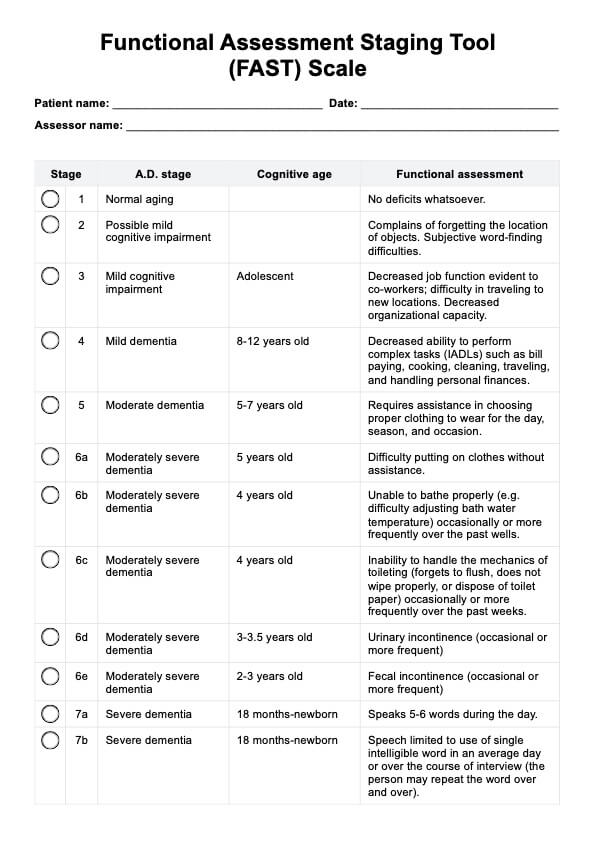The FAST Scale is a tool developed by Dr. Barry Reisberg to assess the functional decline in patients with dementia, particularly those with Alzheimer's disease. It evaluates cognitive and functional abilities across seven stages of dementia.

FAST Scale
Dementia causes functional deterioration among millions of elderly people. Prepare for it now. Assess dementia symptoms early with our FAST Scale template.
Use Template
FAST Scale Template
Commonly asked questions
Life expectancy varies depending on the stage of dementia. Patients in Stage 7 of the FAST Scale, indicating severe dementia, may have a life expectancy of approximately 1.5 to 2 years.
A patient with a FAST score of 7 or above, which includes severe dementia and significant functional decline (e.g., loss of speech and mobility), typically qualifies for hospice care, as it indicates the late stages of dementia.
EHR and practice management software
Get started for free
*No credit card required
Free
$0/usd
Unlimited clients
Telehealth
1GB of storage
Client portal text
Automated billing and online payments











